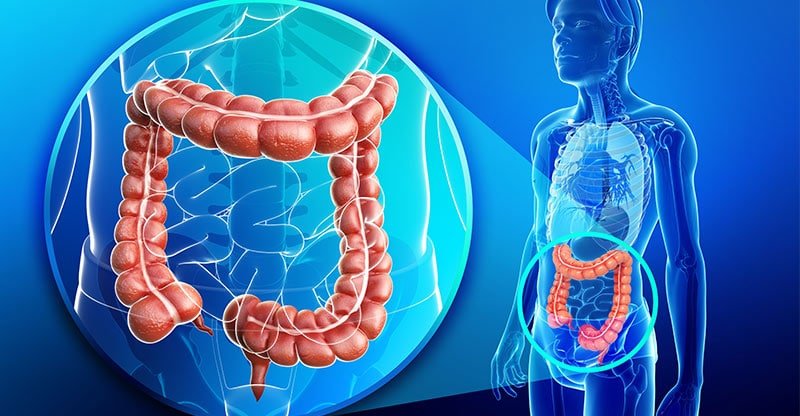People who are considering a gluten-free diet are often motivated by their health. If you have been diagnosed with Celiac disease, you must immediately begin eating gluten-free. However, if you do not have a firm diagnosis, and have been experiencing gastrointestinal issues, or other symptoms, such as headaches, fatigue, skin rashes, bloating or mood swings, you may wonder if a gluten-free diet is right for you. More importantly, you may be wondering, When will I feel better? And how long do the effects of gluten last?
Everybody’s situation is unique, of course, but many sources indicate that you may start feeling better within days or weeks of starting a gluten-free diet. If you have been suffering from symptoms for a very long time, however, it may take up to six months for your gastrointestinal system to heal from the negative effects of gluten.
GI Transit Time
GI transit time is the amount of time it takes your body to move food from your mouth, through your stomach and intestines, and out of your body through a bowel movement. For most people, this averages around 48 hours, or two days. Some people who have slow digestive systems or suffer from constipation may take three to four days for this process. Therefore, if you eat gluten, it can take anywhere from two to four days to exit your system.
The effects of gluten may last longer than this, though, because if you have Celiac disease or are gluten intolerant, your intestines are becoming inflamed or irritated by contact with gluten.
Anatomy of the Healthy Gastrointestinal System

Your GI system is lined with cells called enterocytes (also known as gut epithelial cells) that form ripples. These ripples maximize the surface area of your gut, and the delicate villi that capture nutrients are separated by deeper spaces known as crypts. The epithelial cells that are on the villi are constantly regenerating themselves, and in an person who is healthy, will be replaced with new epithelial cells every four or five days. This process slows down as we get older but the cells are still regenerated within a week. The cells that are down in the crypts take longer to be replaced, but in healthy people, the entire lining of the intestinal tract will be replaced once or twice per month!
A Damaged GI System
However, if you have been experiencing GI issues for awhile it’s possible that your intestinal system has been damaged, and needs to heal. If you have Celiac disease or are sensitive or allergic to gluten, your GI system is being inflamed by gluten, and never has a chance to heal properly. The body may be producing antibodies to the gluten in your diet that continue to damage the cells that line the gastrointestinal tract. In this case the epithelial cells may take one to even six months to completely heal. This may be compounded by the fact that a sensitive gut may also lead to nutritional deficiencies that decrease your body’s ability to repair itself.
Begin the Healing Process
Based on the above information about how the gastrointestinal tract can heal itself, it is very possible that you will begin to feel better within a few days of being on a strict gluten-free diet. As a reminder, this means you must read the label of everything you put in your mouth, to ensure that it does not contain hidden sources of gluten. Many nutritionists recommend a whole foods diet at the beginning, including lots of fresh fruit, vegetables and meat or chicken that is simply prepared with no added (or processed) ingredients. This is a great way to kick-off a gluten free diet. This will also help you avoid common sources of cross contamination that can result from eating in restaurants, or purchasing food that is prepared in a deli or fast food establishment.
Assuming that you adopt a completely gluten-free diet, you may start to experience relief from some of your symptoms within a few days. This is because the antibody response is halted, and the epithelial cells that have been damaged can begin to be replaced by new healthy cells. Anecdotes abound on the internet, with stories of people who wake up headache free for the first time in months, or who go days without the painful cramping or sense of urgency that is common with GI problems. Because of the body’s natural regeneration processes, it is possible to reverse all the damage in your gut within a few weeks.
Effects of Gluten – Gluten Withdrawal
Some people, however, experience a phase of gluten withdrawal symptoms that can make them feel worse, not better, for the first few weeks. The reasons behind this are complex, and vary widely for each individual. But, some people actually develop an internal addiction’ to gluten, and removal of gluten from their diet can cause a wide range of reactions, including a flare-up of gastrointestinal distress, rashes, intense headaches, or a sense of mental fatigue. It’s like the immune system is amped up by the constant battle’ with gluten, and it takes awhile to recognize that the gluten is no longer present.
Don’t be surprised if you are hit with intense cravings during the withdrawal period. Your body may react with a craving for gluten-based products. Also, try to avoid the temptation to eat more sugar, to compensate for the lack of gluten in your life. Excess sugar is going to impede the healing process. Excess salt will also complicate your healing, by causing swelling or bloating. Continue to stick to a healthy gluten-free diet for at least one month until both your immune system and your gastrointestinal system have adjusted to being gluten free.
Summary
Once you begin a gluten-free diet, stick to it religiously to get the most benefit. Your body will begin healing almost immediately. Though you may experience gluten withdrawal, the worst should be over in a few days for most people. If you were fairly healthy previously, you may experience significant symptom relief within the very first month. Continue to monitor your symptoms, and look for improvements over the next few weeks, and perhaps as long as 6 months if your immune system was extremely challenged previously. Beyond 6 months, it is unlikely that a gluten free diet will provide additional relief, though, and you may need to explore co-existing food allergies, such as dairy or other allergies.
Sources
- http://www.glutenfreedaily.com/resource-center/gluten-101/
- http://nutritionaltherapy.com/the-storm-before-the-calm-why-some-people-get-temporarily-worse-on-a-gluten-free-or-casein-free-diet/
- http://www.health.harvard.edu/family_health_guide/getting-out-the-gluten
- http://mentalhealthdaily.com/2015/03/27/gluten-withdrawal-symptoms-how-long-do-they-last/
- http://www.thepaleomom.com/2012/09/how-long-does-it-take-the-gut-to-repair-after-gluten-exposure.html
